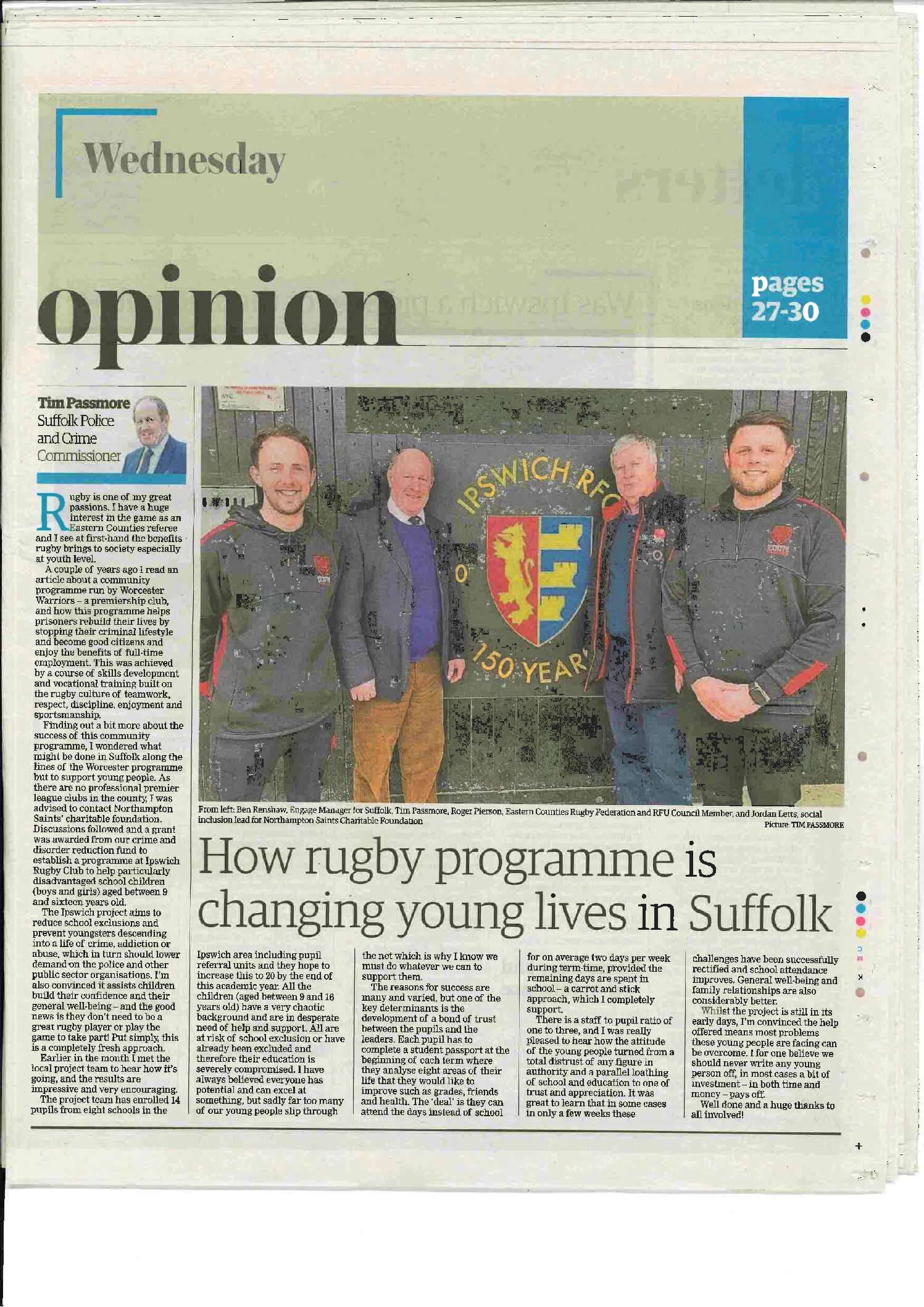The Ipswich Rugby Project – Changing young lives in Suffolk
We love hearing about how our grantmaking is making such a difference to lives around Suffolk. The Ipswich Rugby Club project recently featured in the East Anglian Daily Times, showing us how the rugby programme is changing young lives in Suffolk.
Ipswich has a higher than National average NEET (not in education, employment or training) population at 5.6%. 21% of 0-15 year olds are living in “income deprived” households, which can have negative impacts on schooling, physical and mental health.
Provided by Suffolk Community Foundation, the initial £20,000 has supported the “Values programme” particularly focused on the Gainsborough estate, Ipswich, focused around teamwork, respect, enjoyment and discipline. Sessions also include CV writing, mock interviews, employer workshops and work placements.
Funded by our Police & Crime Commissioner fund, this project aims to reduce school exclusions and prevent youngsters descending into a life of crime, addiction or abuse. which in turn should lower demand on the police and other public sector organisations, as well as assisting children to build their confidence and general well being, without the need to be a great rugby player!
The project team has enrolled 14 pupils from eight schools in the Ipswich area, including pupil referral units, with the hope to increase this to 20 by the end of the academic year. Aged between 9 and sixteen years old, these students have very chaotic backgrounds and in desperate need of help and support, most with the risk of school exclusions, compromising their educations.
I have always believed everyone has potential and can excel at something, but sadly far too many of our young people slip through the net which is why i know we must do whatever we can to support them.
The team continued, and said the reasons for success are many and varied, but one of the key determinants is the development of a bond of trust between the pupils and leaders. The students are able to attend the project days instead of school, on average two days a week during term time, provided the remaining days they attend school. In only a few weeks, school attendance has improved greatly, as well as general well-being and family relationships.
The attitude of the students has seen a change too. From no longer loathing authority and education overall, but instead a trustfulness and appreciation to the system.

Whilst the project is still in its early days, i’m convinced the help offered means most problems these young people are facing can be overcome. I for one believe we should never write any young person off, in most cases a bit of an investment, in both time and money, pays off.
